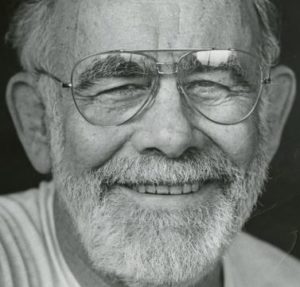P!nk

Alecia Beth Moore, aka. Pink (Credit: Evan Agostini)
Alecia Beth Moore (b. 1979) was born in Pennsylvania to a Jewish mother and an Irish-American father. She enjoyed singing from early childhood and started performing at age 14, taking on the stage name “Pink” based on the character Mr. Pink in the film Reservoir Dogs. That same year, she was asked to join the band Basic Instinct. The band broke apart before releasing any songs. Two years later, Pink formed a new R&B group called Choice. After finding little success, one music executive told her to “go solo, or go home”, so she did. Her first single came out in 2000 and quickly went to the top of the Billboard charts. The album was certified double-platinum, and Pink won Female New Artist of the Year. The following year, “Lady Marmalade” (with Christina Aguilera, Lil’ Kim, and Mya) became her first #1 single, and won her a Grammy. For her second album, Pink took things into her own hands to show her real talents, as opposed to fulfilling the boring wishes of the music industry. Pink was right, and the album was a huge international success (it remains her most successful to date). All in all, Pink has produced seven albums (so far), selling over 40 million copies to make her one of the bestselling musicians of all time. She has also appeared in a dozen films, is a vocal social activist and philanthropist, and is raising two kids along the way. Pink has been credited with inventing “the modern wave of Pop Diva Domination”, and inspired countless others, including Adele, Kelly Clarkson, Katy Perry, Lady Gaga, and Rihanna. Earlier this year, People Magazine called her “a performer, mother and role model whose honesty, humour, confidence and sheer star power make her one of the most beloved and fascinating entertainers on the planet.”
Words of the Week
The Jews gave us the Outside and the Inside – our outlook and our inner life. We can hardly get up in the morning or cross the street without being Jewish. We dream Jewish dreams and hope Jewish hopes. Most of our best words, in fact – new, adventure, surprise; unique, individual, person, vocation; time, history, future; freedom, progress, spirit; faith, hope, justice – are the gifts of the Jews.
– Thomas Cahill


 Gerald Wexler (1917-2008) was born in The Bronx to an immigrant family of German-Jewish and Polish-Jewish background. He graduated from high school by age 15, but there was little to do in the difficult days of the Great Depression. Wexler spent much of his time with a small circle of friends listening to music and discussing literature. It was only after returning from World War II military service that he finally pursued a career in journalism and music. He got a job as a reporter for Billboard Magazine, and soon became its editor. At the time, the magazine had a separate music chart for “black music”, called “Race Records”. Wexler took a stand against racism and came up with a new title, renaming the chart “Rhythm & Blues”. He thus coined the now popular term “R&B”. In 1953, the president of the start-up Atlantic Records (a fellow Jew named Herb Abramson) was drafted to the US Army. Wexler was offered to take his place. Under Wexler’s leadership, Atlantic Records became one of the world’s most successful music labels, and produced some of the biggest names in music, including Ray Charles and Aretha Franklin. For bringing the latter to the world, Wexler was named Record Executive of the Year in 1967. (Franklin had struggled to find success in music until Wexler convinced her to join him at Atlantic, and produced her breakout hit song, “Respect”.) The following year, he signed a young group called Led Zeppelin. Wexler would go on to work with other big stars, including Bob Dylan, the Bee Gees, Richard Pryor, Carlos Santana, and George Michael. He was inducted into the Rock and Roll Hall of Fame in 1987. Wexler played a central role in ending the era of “race music” (and stopping the practice of white musicians covering songs of black musicians and raking in all the fame and fortune for themselves). He opened the door for more “black music” to enter the once all-white Billboard charts, and has been credited with bringing “black music to the masses”. Not surprisingly, Wexler has been called “a prophet of roots and rhythm” and “the Jewish king of black music”.
Gerald Wexler (1917-2008) was born in The Bronx to an immigrant family of German-Jewish and Polish-Jewish background. He graduated from high school by age 15, but there was little to do in the difficult days of the Great Depression. Wexler spent much of his time with a small circle of friends listening to music and discussing literature. It was only after returning from World War II military service that he finally pursued a career in journalism and music. He got a job as a reporter for Billboard Magazine, and soon became its editor. At the time, the magazine had a separate music chart for “black music”, called “Race Records”. Wexler took a stand against racism and came up with a new title, renaming the chart “Rhythm & Blues”. He thus coined the now popular term “R&B”. In 1953, the president of the start-up Atlantic Records (a fellow Jew named Herb Abramson) was drafted to the US Army. Wexler was offered to take his place. Under Wexler’s leadership, Atlantic Records became one of the world’s most successful music labels, and produced some of the biggest names in music, including Ray Charles and Aretha Franklin. For bringing the latter to the world, Wexler was named Record Executive of the Year in 1967. (Franklin had struggled to find success in music until Wexler convinced her to join him at Atlantic, and produced her breakout hit song, “Respect”.) The following year, he signed a young group called Led Zeppelin. Wexler would go on to work with other big stars, including Bob Dylan, the Bee Gees, Richard Pryor, Carlos Santana, and George Michael. He was inducted into the Rock and Roll Hall of Fame in 1987. Wexler played a central role in ending the era of “race music” (and stopping the practice of white musicians covering songs of black musicians and raking in all the fame and fortune for themselves). He opened the door for more “black music” to enter the once all-white Billboard charts, and has been credited with bringing “black music to the masses”. Not surprisingly, Wexler has been called “a prophet of roots and rhythm” and “the Jewish king of black music”.